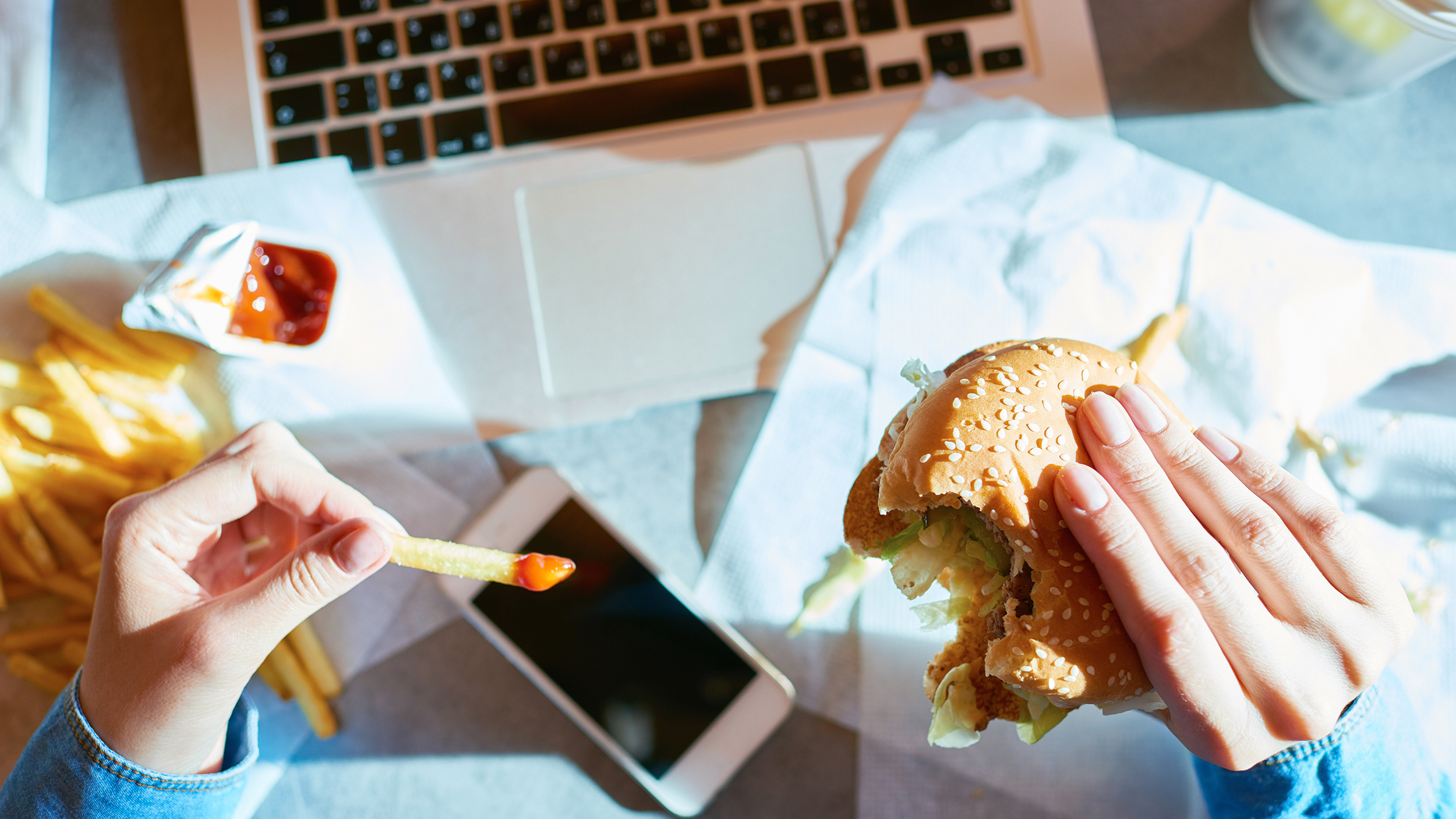Health, Nutrition
3 Ways to prevent Stress Eating
Emotional eating is eating as a way to suppress or soothe negative emotions, such as stress, anger, fear, boredom, sadness and loneliness. Major life events or, more commonly, the hassles of daily life can trigger negative emotions that lead to emotional eating.
Summary: 60 Second Read
This article will cover-
How to Know if you are an emotional eater
Ask yourself?
- Do I eat more when I am feeling stressed?
- Do I get sudden urge to eat even when I am full or had my last meal just a while back?
- Do I eat to feel better (to calm and soothe myself when I am sad, mad, bored, anxious, etc.)?
- Do I reward myself with food?
- Does food make me feel safe?
- Do I feel powerless or out of control around food?
Helpful tips to prevent stress eating
Whether one is a frequent emotional eater or has a tendency to do it from time to time, below are some helpful tips to prevent stress eating:
1. Getting the stress under control
Of course it’s easier said than done. There’s always something that stresses us out, whether it’s a meeting at work or a family issue. This stress not only wreaks havoc on our body physically, it also results in us overeating.
When stressed, our body releases cortisol, which also happens to increase appetite. Whether we are hungry or not, our body craves food, and to quell this “hunger” we eat. In many cases, we end up eating high-fat, sugary foods, making the overeating even worse.
Even if we can’t reduce the amount of stress, we can try other alternatives to deal with it instead of reaching for the comfort food. For food-free ways to handle emotional ups and downs, consider going for a walk, meditating, talking to a friend, writing in a journal, listening to music or even bathing with our fav bath bombs. Whatever suits you the best. Eating habits are hard to change so even if we can’t get rid of them immediately, we can try to bring them under control little by little. One way is to try portioning the food, taking a small serving and savoring it slowly. Check whether you are still hungry after having that small portion or is it just the stress making you hungry.
Summary- There are different things/ methods that work for different people to get their stress under control. Find out what's best for you.
2. Know the difference between physical and emotional hunger
During a stressful time, it can be difficult to tell if you’re truly hungry—meaning your body needs nourishment—or if your mind is attracted to food to express or disconnect from your feelings. One helpful tactic is to tune into your body. Physical hunger has physical symptoms, like a slightly growling tummy.
If you’ve eaten a balanced meal and your stomach is full, yet you still feel hungry, you may be experiencing anxiety or loneliness. If you can stop and make the distinction, address your emotions in ways that don’t involve eating. And when you do eat, do so without distractions (no TV, computer, reading, phone, etc.), put down the food or your utensil between bites, and listen to your body’s cues. Stop eating when you feel full, but not overly full, and if something is still left in the plate, store it for the next meal.
Summary- Know your hunger pangs. Whether they are due to empty stomach or just because you want to eat to distract yourself or pass time.
3. Pay Attention to All Your Hunger Cues
If you’re waiting for your stomach to growl, you may be setting yourself up to overeat, because we don’t all experience the same hunger cues. Sometimes it shows up as a headache or a bad mood that comes on suddenly.
Knowing how hunger can show up in your body is a key to recognizing it before it’s too late and you’re starving. Other potential hunger signals include:
- Growling stomach
- Nausea
- Headache
- Low energy
- Suddenly irritable
Make note of which hunger cues you experience each time you eat. Slowly you’ll discover what means “I’m hungry” for your body, allowing you to eat right away rather than waiting until later, when you’re ravenous, and therefore more likely to overeat.
Summary- Know when you start to get hungry and eat then instead of waiting till you are ravenous as that might lead to overeating.
Reference:
- https://www.health.harvard.edu/staying-healthy/why-stress-causes-people-to-overeat
- https://www.mayoclinic.org/healthy-lifestyle/weight-loss/in-depth/weight-loss/art-20047342
- https://www.hopkinsmedicine.org/health/wellness-and-prevention/tips-to-manage-stress-eating






































































































